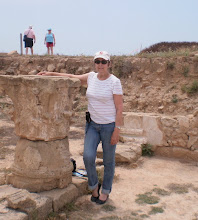Some friends of ours were trapped, more or less, in their home off Carmel Valley Road for about ten days.
When the sheriff's deputies came to evacuate them, they chose to stay and protect their home and livestock themselves rather than leave it to others.
Whenever I've heard of people doing this in the past, I envisioned some kind of diehard shotgun totin' redneck who would rather go up in flames than let any kind of government person set foot on their property.
As with so many stereotypes, this one did not stand up to investigation.
Our friends do have shotguns and probably wouldn't really mind if you called them rednecks. But their position is not diehard or fanatical.
While they did have to sign a waiver proferred by the deputies that they were staying voluntarily and were thus "victims" of the situation, they could have left at any time, if the road weren't blocked by fire, but without assistance and possibly without being able to take their animals.
But staying allowed them to keep an eye on the encroaching flames from a distance (never closer than two ridges away) and make what preparations they could, including flagging previously-cut dozer and jeep trails so that they could be re-used by firefighters if necessary.
In the meantime, we were all wondering when this state is going to figure out the proper place of wildfires in our landscape and ecology.
Forty years ago, I saw an exhibit at the Oakland Museum that explained the beneficial role of fires in many of the ecosystems that are found here. When fires are allowed to burn every year, on a small scale, they not only keep the fuel supply from getting out of hand but cause the seeds of beneficial plants (manzanita? madrone?) to germinate, thus keeping the ecosystem healthy.
The passage of time may have dulled the precision of this memory but I don't think the science has changed since then. Yet 40 summers have gone by with each fire season more catastrophic than the last. This year our friends were fortunate, but what about the future?
What keeps us from using the knowledge we have of wildfires in a pro-active way to keep ecosystems strong, spare the loss of property and life and save the millions of dollars that have been needed so far to fight this year's huge fires?
I suspect part of the reason is that the money for sane fire management is never available, so we end up spending even more when the fires have to be fought. Sort of like cutting the education budget but spending more on prisons.
Smokey the Bear also needs to change his message, and a coalition of tree-huggers and gun totin' rednecks probably wouldn't hurt either.

No comments:
Post a Comment